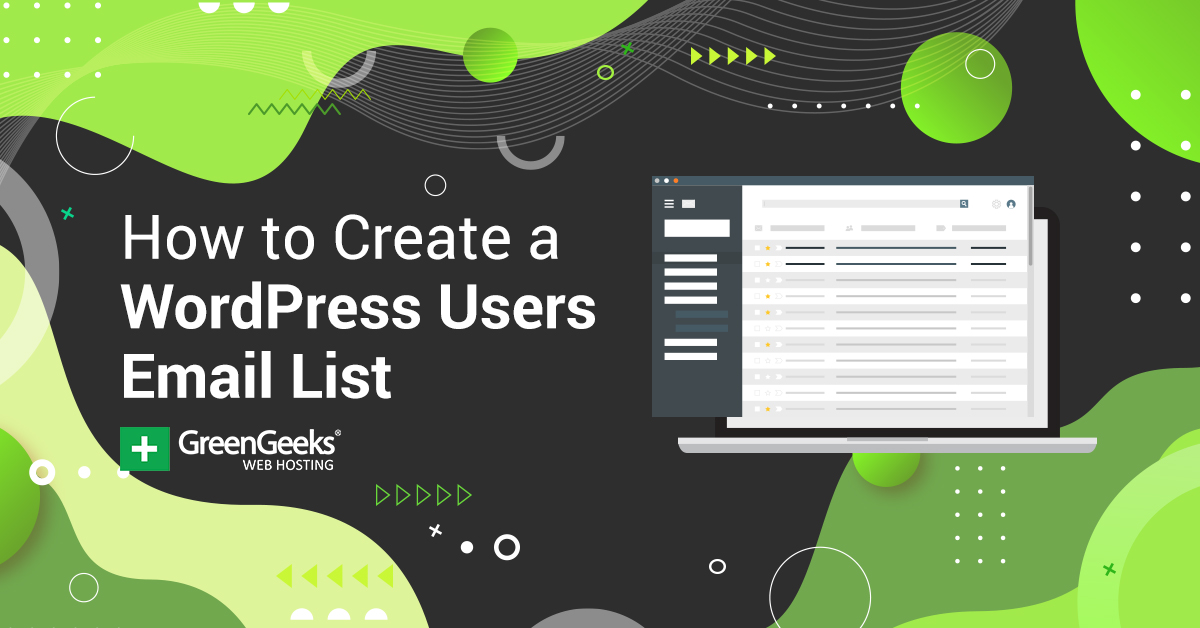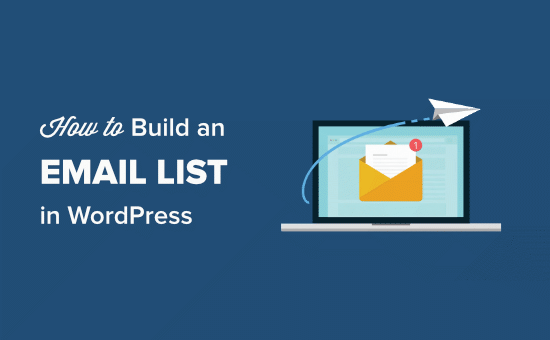Top Advice For Choosing A Hematologist Email list
Wiki Article
What Do I Need To Think About When Purchasing A Hospital Chief Executive Email List?
To ensure that the information you collect is reliable, accurate and reliable, you should take note of the points below. These are the most important considerations: Quality of data and accuracy
Source of information: Ensure that the list provider uses reliable sources, such as business directories, professional databases or opt-ins that are verified. Data sources that are reliable reduce the possibility that data is outdated or irrelevant.
Verification Process: Determine how often your information is cleaned and updated. If you do not confirm your email messages, they may bounce at high rates. This could negatively impact your marketing efforts and your image.
Segmentation and Filters: Be sure the list can be segmented such as by location, size of hospital, type of hospital, (e.g. private or public) and by particular areas of specialization. Targeted marketing is more efficient than a large-scale marketing.
Email Deliverability: Find out whether the provider has a guarantee regarding delivery rates. Bounce rates are crucial as they could impact the reputation of your domain in the case of sending emails.
2. Compliance with Legal Regulations
Data Privacy Laws. Make sure your email list complies with regulations such as the General Data Protection Regulation in Europe, or the California Consumer Privacy Act in the U.S. Ensure the data is collected with the consent of the user and is used in a responsible manner.
The CANSPAM Act in America, make sure your list is compliant with the CANSPAM Act which regulates emails for commercial purposes. If you fail to conform, there could be penalties.
Permission-based marketing: Check if CEOs were given permission to the email to be sent. The sending of unsolicited emails can lead to penalties and could damage your reputation.
3. Provider Reputation
Reviews, testimonials and Case Studies Check the reputation of your business online with the help of reviews, testimonials, and case studies. Look for positive reviews from other customers in similar sectors.
Transparency: Ensure the provider is transparent about the way in which data is collected and how it is maintained and updated. Do not choose providers who don't provide a description of the process of collecting data.
Customer Support: Choose a service that has a strong customer support. There may be a need for assistance with data customization or technical problems.
4. Cost and Value
Pricing Model: Different service providers have different pricing structures. (For instance they might offer pay-per-lead models, subscriptions, or flat costs). Compare the options to ensure that the price is in line with the budget and the expected return on your investment (ROI).
Refund Policy: Choose an online service that has an option for replacements or refunds for invalid emails or contacts which do not meet your requirements.
Additional Services: A lot of providers offer additional services such as email campaign management or CRM integration. These extra services can be very beneficial to your company.
5. Data Usage
Exclusive vs. Shared Lists: Determine whether the email list is exclusively for your company or shared with several buyers. Exclusive lists will lead to greater engagement. Lists that are shared can cause crowd fatigue due to excessive contact.
Licenses and Ownership: Find out if you are the owner of the data after you purchase it, or if you only possess a single-use licence. Continuous access to data could require licenses or regular payments.
6. Data Integration and Format
CRM Compatibility - Ensure that your email lists are compatible with CRM as well as email marketing tools. Consider formats such as CSV or Excel, which are commonly accepted by the majority of platforms.
Easy of Use: Determine the ease with which you can manage, filter, and segment the data following buying it. Data that can be manipulated with a lot of complexity may not warrant the cost.
7. Ethical Questions
Hospital CEOs have a lot on their plates. Be sure that the reason for your outreach is pertinent to their role and beneficial to them. Irrelevant or intrusive messaging can harm your reputation.
Avoid Spam: Inundating recipients with a lot of emails can be considered spam and damage your email sender's reputation. To avoid this problem make sure you plan a carefully timed and carefully planned email outreach.
The article's conclusion is:
When approached in a strategic manner, buying an email list of hospital CEOs can be a worthwhile investment. Make sure you prioritize quality data and legal compliance, as well as relevance and efficiency to ensure your outreach effort is successful and well received. To maximize the return on investment You should look into your provider's offerings and ensure that you understand their terms. View the best hospital ceo email list for website advice.

What Do I Need To Think About When Purchasing An Urgent Email List?
If you're considering purchasing an email urgent care list, make sure to take into consideration a number of aspects. These include whether the list will be reliable, effective and compliant legally and also relevant to your marketing goal. The most important considerations are: 1. Data Accuracy and Quality
Source of Information: Make sure you get your data from reliable sources, such as medical associations, healthcare databases or directories for professionals. Avoid lists that are created through scraping or other methods that may not be accurate, since they may contain inaccurate data.
Verification Process: Confirm that the list of email addresses has been continuously verified and updated. A reliable service provider will follow a rigorous method of verification to eliminate inactive or obsolete email addresses. This process ensures the highest delivery rates and decreases bounce rates.
Segmentation and Targeting: The segmentation should include details like the place of the facility (e.g. city or state or region), its size, and any specialties (e.g. diagnostics or pediatrics) and roles of key decision makers (e.g. doctors and practice owners, etc.). Targeted lists improve the relevance of your outreach and boost engagement rates.
2. Legal Regulations
Data Privacy Laws - Ensure the list conforms to applicable laws regarding data privacy like the General Data Protection Regulation in Europe and the California Consumer Privacy Act in the U.S.A. It is a requirement that email addresses collected should be collected with the appropriate consent, and then processed in a legal manner.
CAN SPAM Act: In the U.S.A., all email marketing campaigns are subject to the CAN SPAM Act. Incorporate the physical address of your company, stay clear of false subject lines, and offer an opt-out option that is clear. Non-compliance with the law can result in penalties or damage to your business's reputation.
Opt-in Consent: Make sure that all addresses on the list were obtained with explicit permission. This means that the recipients have signed up to receive marketing messages. This decreases the risk of receiving spam complaints or legal issues.
3. Provider Reputation
Established Providers: Choose one with established track records of providing compliant and high-quality lists. Review the testimonials, case studies and customer reviews to gauge the service's satisfaction.
Transparency: Providers need to be transparent about how they got their information and when it is updated. If the provider of data isn't able to provide precise answers, it could be a sign of poor quality data.
Customer support is crucial: If you need help with technical issues, customization of your list, or to ensure compliance with the law, a strong customer support is vital. A responsive service provider will help you get the most benefits from your list of email subscribers.
4. Return on investment (ROI) and cost
Pricing Models: Email list providers generally offer different pricing structures like pay-percontact or flat costs. It is important to consider the pricing model in relation to your marketing budget and the expected return. Balance the cost of the list against the accuracy and quality of the data.
Refund or replacement policy. Trustworthy providers will provide the option of refunds or replacement policies when the majority of emails are in error or are not delivered. Be sure to know the terms of this policy prior to purchasing.
Value for Money: Concentrate on lists that are valuable through precise data and segmentation. Making investments in top-quality lists can increase engagement and boost the return on investment.
5. Data Ownership and Use
Single-Use vs. Multi-Use: Decide whether the list can be utilized for a single campaign or for multiple campaigns. Multi-use lists are better when your intention is to conduct a series of outreach campaigns.
Shared Lists vs. Exclusive lists: Determine if the list is only for your business or if it is shared with other buyers. Shared Lists: Determine if the list is only for your business or shared with buyers. Shared lists could lead to list exhaustion as the recipients receive marketing messages from several companies.
6. Data Integration and Format
CRM compatibility: Make sure whether the email list are sent in an email format that is compatible with your Customer Relationship Manager (CRM) or an email platform. It could be CSV, or Excel. This allows for a seamless integration and enables you to begin your marketing campaign as soon as possible.
Ease in Use The email lists should be manageable and easily segmented according to certain requirements. A well-organized list can increase the efficiency of targeting and personalization.
7. Ethical Questions
Relevance: Professionals in urgent care can be busy so you should ensure that the content you provide is useful and beneficial. Make sure your messages are tailored to the specific needs of their clients, such as the medical supplies, equipment or technology for healthcare they require. Sending irrelevant content can damage your brand reputation and decrease engagement.
Be cautious about how often you send out emails. Sending unsolicited emails or over-emailing could result in spam complaints and can damage your reputation as an emailer.
Conclusion
When you purchase an urgent email list, pay close attention to the accuracy of the data, the legal compliance, and the credibility of the vendor. Make sure the list is regularly updated and segmented, as well as compliant with privacy regulations. Sending relevant content to an appropriately targeted and well-organized list will boost engagement and help you achieve a positive return on investment. Have a look at the pro urgent care email list for blog examples.
